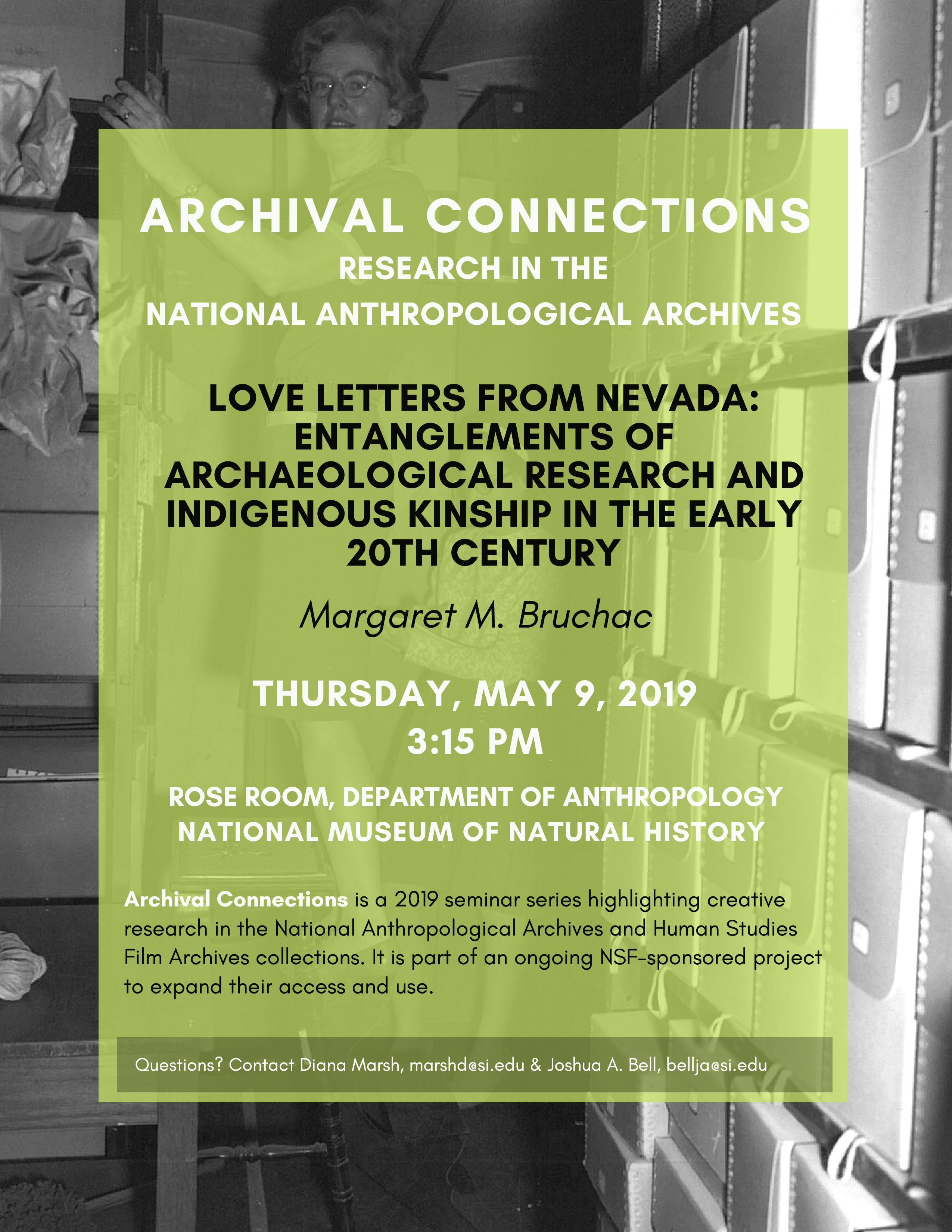Thursday, May 9, 2019 - 3:15pm
The Rose Room
Department of Anthropology
Smithsonian Institution
National Museum of Natural History
Washington, DC

Upcoming Talk at the National Museum of Natural History, in the seminar series “Archival Connections: Research in the National Anthropological Archives.” Thursday, May 9, at 3:15 pm in the Rose Room, Department of Anthropology, NMNH. Non-Smithsonian attendees are very welcome but must RSVP to marshd@si.edu by Tuesday, May 7.
SPEAKER: Margaret M. Bruchac, University of Pennsylvania.
TITLE: "Love Letters from Nevada: Entanglements of Archaeological Research and Indigenous Kinship in the Early 20th Century"
ABSTRACT: During the early years of salvage anthropology, archaeological field research was largely directed by white male scholars who, although they often employed Indigenous people as informants and assistants, rarely shared intellectual credit. A few cases, however, show a far more egalitarian approach to negotiating gender, class, and kinship relations in the field. In this talk, Bruchac discusses the entanglements among the Tahamont (Abenaki) and Parker (Seneca) families, as they developed both scientific and romantic relationships with white archaeologists, including Mark Raymond Harrington, Julian Hayden, and James Thurston. Crucial and unexpected details about these family relations wewre recovered during research plumbing the archives of the Smithsonian National Museum of the American Indian, Southwest Museum, and New York State Museum. The untapped (and often mis-catalogued and mis-identified) evidence in those papers, when combined with data in family archives, also documented the important contributions of two female Native archaeologists, Endeka Parker and Bertha Parker, who were recognized at the time for their parts in dramatic archaeological discoveries, but have been obscured in the stream of history. In her 2018 book -- Savage Kin: Indigenous Informants and American Anthropologists -- Dr. Bruchac re-examines these relationships in two back-to-back chapters — “Representing Modernity” and “Collaborative Kin” — that feature details from the correspondence among early 20th century archaeologists, museum professionals, artisans, theatrical performers, and social activists. Throughout, Bruchac demonstrates how archival research and reverse ethnography can be deployed to recover crucial data on missing or misrepresented Indigenous histories.
ABOUT THE SERIES: Archival Connections is a 2019 seminar series highlighting creative research in the National Anthropological Archives and Human Studies Film Archives collections. It is part of an ongoing NSF-sponsored project to expand their access and use.
SERIES COORDINATOR: Diana E. Marsh, Postdoctoral Fellow in Anthropological Archives, National Anthropological Archives, Department of Anthropology, Smithsonian Institution, National Museum of Natural History.

 Native American & Indigenous Studies at Penn
Native American & Indigenous Studies at Penn